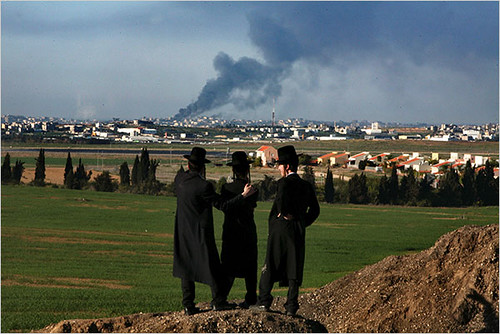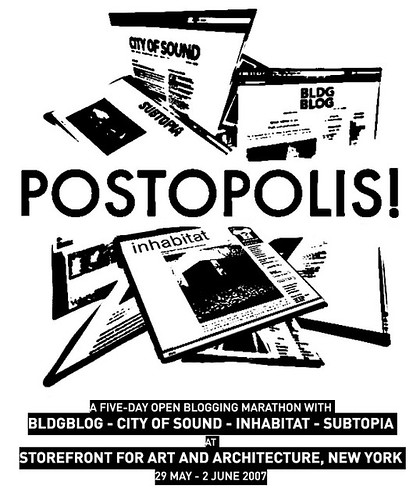The "Legislative Violence" of Gaza

[Image: Photo: Pavel Wolberg (via).]
In light of the "scale of Israel's twenty-two-day attack on Gaza in December 2008-January 2009 - which killed 1,300 people and damaged or destroyed about 15% of all its buildings," writes Eyal Weizman -- "The emerging landscape of "lawfare" allows military operations to remake international humanitarian law. Israel's assault on Gaza both exposes the dangers and suggests the need for a response that subjects this law to critique.” On "Legislative Violence":
“The new frontiers of military development, which complement developments in the area of surveillance and targeting, are being explored via a combination of legal technologies and complex institutional practices. The former American general and military judge Charles Dunlap has called the result lawfare: "the use of law as a weapon of war." By lawfare Dunlap primarily meant to show how weaker, non-state actors were seeking to gain a moral advantage by claiming that war crimes have been committed by the stronger, state army; but lawfare could also be used by the state (see Charles Dunlap, "Lawfare amid warfare", Washington Times, 3 August 2007).” […]
“The legal scholar David Kennedy claims that lawfare "demonstrates an emergent relation between modern war and modern law" (see Of War and Law, Princeton University Press, 2006). It is exemplified in the way that, for example, military lawyers in the midst of a campaign "legally [condition] the battlefield" by poring over target-maps and informing soldiers in what way they are entitled to kill civilians. IHL then becomes the ethical vocabulary for marking legitimate power and justifiable death.”
“Although the claim that having laws of war is a good thing can still be accepted, it is necessary to be alert to the structural paradox they pose: for when they prohibit some things, they authorise others, and it is the border between the allowed and the forbidden that is the most intense legal battlefield.”
“International law can be thought of not as a static body of rules but rather as an endless series of conflicts over this border. The question is not which interpretation is right, but who has the power to force their interpretation into becoming authoritative. In this sense, international law does not merely legitimate violence but actually relies on it.”
Related:
N. Gordon, "How to sell 'ethical warfare'"
S. Graham, ”'Clean territory': urbicide in the West Bank”
L. Feldinger, “First evidence of damage to Gaza’s cultural sites emerges”







0 Comments:
Post a Comment
<< Home